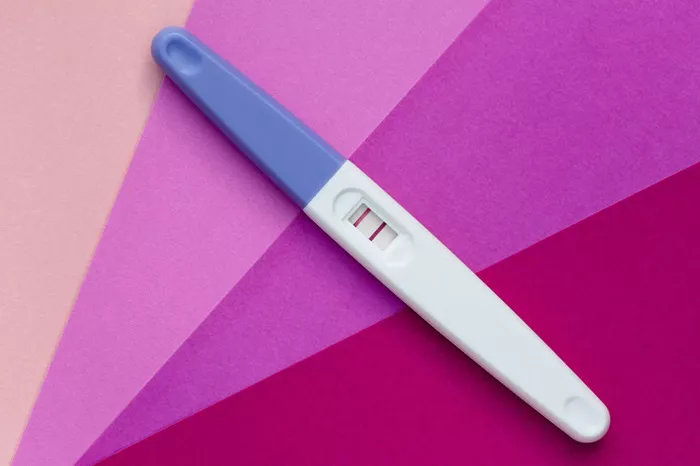A positive pregnancy test can bring a whirlwind of emotions. Whether it is excitement or anxiety, seeing that second line or plus sign can be life-changing. However, there are times when a positive result can be misleading. False positive pregnancy tests, though rare, can occur. Understanding why this happens is crucial for women who find themselves in this confusing situation.
Understanding Pregnancy Tests
How Pregnancy Tests Work
Pregnancy tests detect the presence of the hormone human chorionic gonadotropin (hCG) in urine or blood. This hormone is produced by the placenta shortly after the embryo attaches to the uterine lining. Home pregnancy tests are designed to detect hCG levels that indicate pregnancy.
Types of Pregnancy Tests
There are two main types of pregnancy tests:
Urine Tests: Commonly available over-the-counter, these tests are easy to use at home.
Blood Tests: Performed at a doctor’s office, these tests are more sensitive and can detect pregnancy earlier than urine tests.
Causes of False Positive Pregnancy Tests
Chemical Pregnancy
A chemical pregnancy occurs when a fertilized egg implants in the uterus but does not develop into a full-fledged pregnancy. The embryo may start to produce hCG, but the pregnancy ends shortly after implantation. This can cause a positive test result, followed by a subsequent negative result or the onset of menstruation.
Recent Pregnancy
After a miscarriage or childbirth, hCG levels can remain elevated in the body for several weeks. During this period, taking a pregnancy test can yield a false positive result due to residual hCG.
Medications
Certain medications can interfere with pregnancy tests. Medications that contain hCG, often used in fertility treatments, can cause a false positive result. Some examples include:
Fertility Drugs: These often contain hCG to stimulate ovulation.
Medications for Weight Loss: Some weight loss drugs may affect hormone levels and test results.
Medical Conditions
Certain medical conditions can cause elevated hCG levels and result in a false positive pregnancy test. These conditions include:
Molar Pregnancy: This rare condition involves abnormal growth of trophoblasts, the cells that normally develop into the placenta.
Pituitary hCG: Sometimes, the pituitary gland can produce hCG, leading to a false positive.
Certain Cancers: Some cancers, such as those of the ovary, bladder, or kidney, can produce hCG.
User Error
Improper use of the pregnancy test can also lead to a false positive. Factors contributing to user error include:
Reading the Test Too Late: If you read the test after the recommended time frame, an evaporation line may appear, which can be mistaken for a positive result.
Using Expired Tests: Expired tests can give inaccurate results.
Incorrect Test Handling: Not following the instructions properly, such as not using the first-morning urine, can affect the accuracy of the test.
SEE ALSO: What Is the Latest a Pregnancy Test Will Be Positive?
Contamination
Contaminants in the urine sample, such as soap or blood, can affect the test results. Ensuring a clean sample is essential for accurate testing.
Steps to Avoid False Positive Results
Follow Instructions Carefully
Always read and follow the instructions provided with the pregnancy test. Ensure that you understand how to use the test correctly and when to read the results.
Check Expiry Dates
Before using a pregnancy test, check the expiry date. Using an expired test can lead to inaccurate results.
Use First-Morning Urine
The concentration of hCG is highest in the first-morning urine. For the most accurate results, take the test first thing in the morning.
Consult a Healthcare Provider
If you receive a positive test result, it is advisable to consult a healthcare provider. They can perform a more sensitive blood test to confirm pregnancy and rule out other causes of elevated hCG levels.
The Emotional Impact of a False Positive
Initial Reaction
Receiving a false positive result can be emotionally distressing. The initial reaction may range from joy to confusion and frustration. Understanding that false positives can happen and seeking medical advice can help manage these emotions.
Seeking Support
It is important to seek support from family, friends, or a counselor. Discussing your feelings and concerns can provide emotional relief and guidance on the next steps.
Medical Follow-Up
Follow up with a healthcare provider to confirm the pregnancy and discuss any underlying conditions that may have caused the false positive. This step is crucial for your health and well-being.
Conclusion
While false positive pregnancy tests are rare, they can occur due to various reasons such as chemical pregnancies, recent pregnancies, certain medications, medical conditions, user error, and contamination. Understanding these factors can help manage expectations and emotions associated with a positive test result. For accurate results and peace of mind, always follow the test instructions carefully, use the test correctly, and consult a healthcare provider for confirmation. Seeking support from loved ones can also help navigate the emotional impact of a false positive test result.


